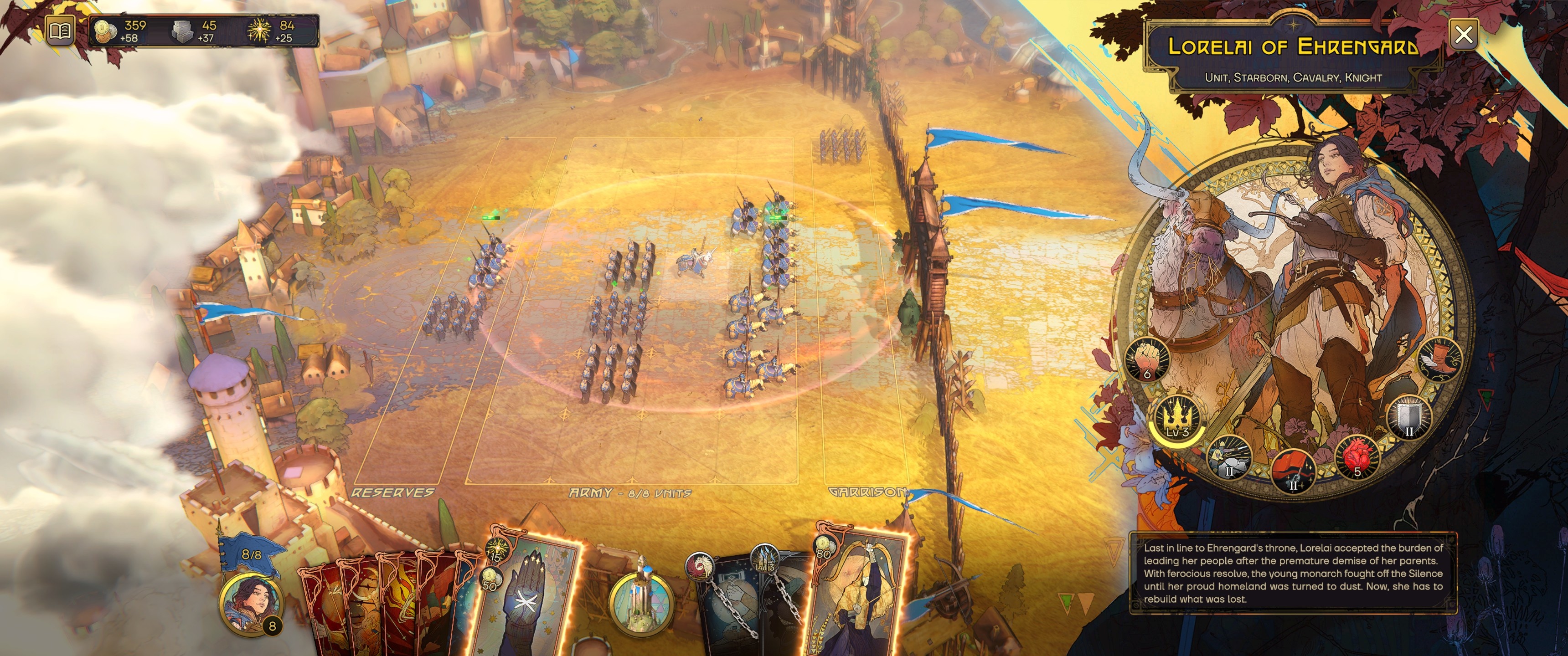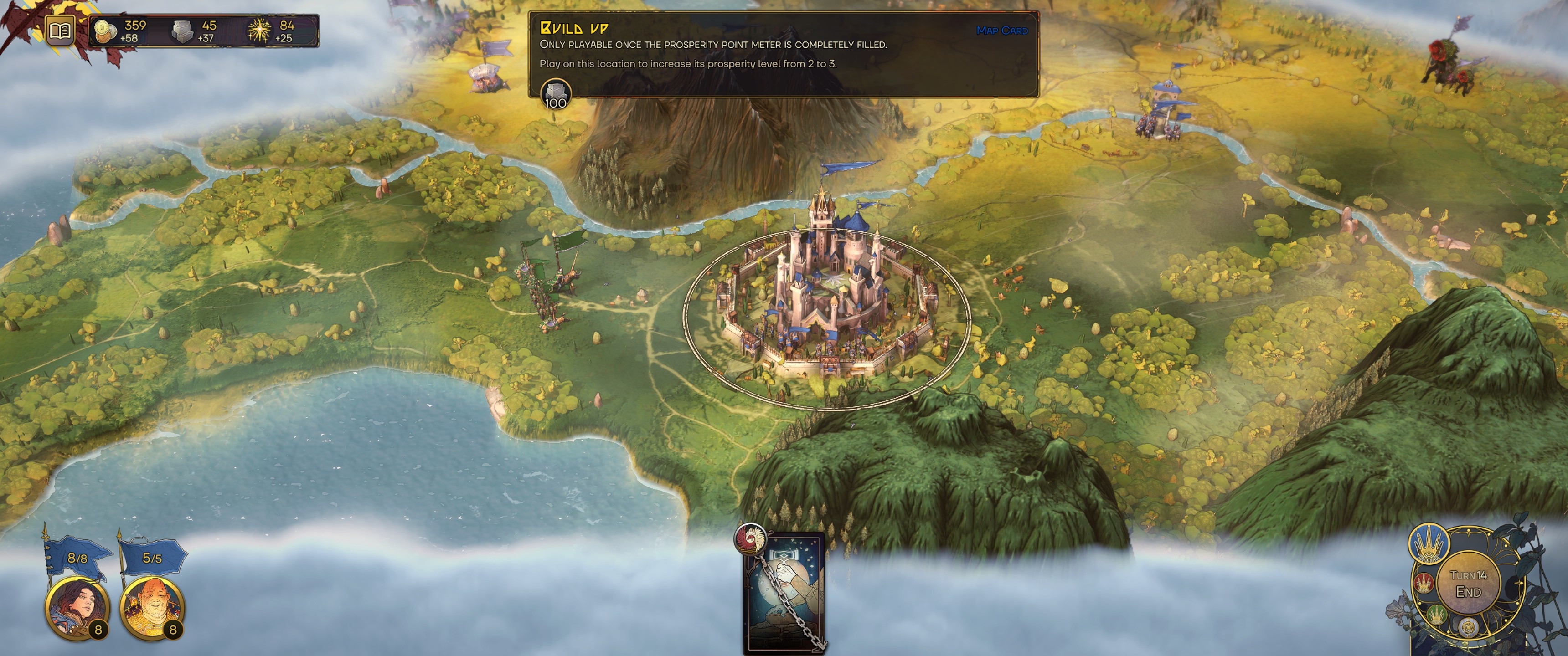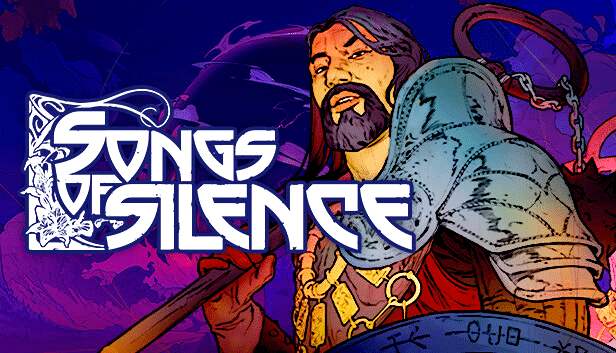We visited the Munich-based developer studio Chimera Entertainment and took a closer look at their new strategy game.
Strategy games don’t exactly have the reputation of being particularly accessible and easy to learn. Especially the titles by the publisher Paradox are considered unwieldy and overly complicated. In order to find your way around to some extent, you have to spend a lot of time.
Songs of Silence by the German developer studio Chimera Entertainment, on the other hand, takes a completely different approach: Their strategy game is supposed to be clear and cost you only a little time. At the same time, the developers want the fantasy battles to be pleasantly challenging. We visited the studio and tell you how well it works so far!
Like Total War in a nutshell?
At first glance, Songs of Silence reminds me a little of Total War. On a world map, we recruit turn-based units in our cities, defend them against attackers and send out generals to conquer new territories. When battle breaks out, we switch to a battle map and fight our competitors in real time.
However, it is here at the latest that major differences become apparent: Because in Songs of Silence we do not control our units manually, but merely determine the formation of our army before the battle: we leave archers well guarded by armoured foot soldiers in the rear lines, while our cavalry stands in front to attack the enemy’s flanks directly.
When it comes to battle, we don’t just watch but play our battle cards determined by the respective general and his units: We can, for example, paralyse enemy units with a large explosion, have our cavalry carry out an assault, or call additional units onto the battlefield. The gameplay trailer shows you what this looks like:
Our armies are initially made up of about five, and later up to 16 units, each consisting of three to 15 fighters. So the battles are not too huge, and they always remain short One to three minutes usually pass before a battle is ended by the retreat or destruction of an army.
The campaign missions and multiplayer games are correspondingly entertaining: you should be able to play through the latter in an evening, and even the longer of the eight missions in the single-player campaign only take a few hours. By the way, you can currently try out the first mission as a (Demo on Steam)
Short, but crispy
Although the principle of Songs of Silence is quickly understood and we soon achieve successes, the strategy game is supposed to be anything but easy later on According to art director Alexander Kehr, the last campaign missions in particular will present us with great challenges – by the way, there is no adjustable difficulty level. Instead, we can choose different starting conditions in multiplayer and random battles.
In the course of the game, there is a lot to master: Over 100 different units should make the battles varied. They have different abilities, attacks, strengths and weaknesses. We have to cleverly combine these fighters with the different heroes who lead our armies and have certain cards and passive abilities
We have to be able to use them in our battles.

This is how we get armies that are specialised in cavalry attacks, ambushes or other forms of warfare. We are allowed to control a maximum of five heroes at the same time and thus, in addition to garrisons, only five armies can move across the world map. With battles fought, our heroes gain experience and unlock new abilities.
In addition to the skilful selection and positioning of units, as well as the effective use of battle cards, we must also learn to use our limited resources wisely. This allows us to expand our cities each turn (which increases our resource production) or recruit new units.
In everything we do, however, we must always be mindful of our capital: If it falls into the hands of enemies, the game is lost. This should also make multiplayer games more exciting. Even if our opponents outnumber us here, we can perhaps capture their capital with a clever move and thus still win the game.
The goal clearly in sight
When playing Songs of Silence and talking to Alexander Kehr, we quickly notice that the strategy game is characterised by one thing in particular: Its clear framework and the very clear focus on the core elements of the game, namely campaign, maps and battles.
Even in the current version, one looks in vain for superfluous and half-baked features. For example, diplomacy, trade, naval battles or other conceivable functions have been dispensed with. Instead, the game concentrates on compact but well-functioning military strategy.
The demo version we played of Song of Silence, which is expected to be released in 2024, already looks well polished. We did not encounter any bugs or other problems, only the AI should become a little more cunning – which is also planned.
Should the strategy game be the success they hoped for, the developers already have further plans, such as a release for consoles. A further campaign and the introduction of new playable factions could then also be imagined.
Editorial conclusion
If, like me, you just don’t have time for long strategy games anymore, then you should definitely check out the demo of Songs of Silence. Thanks to the extremely short but fun battles, you can make significant progress in an hour or two, or even finish a mission altogether.
Nevertheless, the game remains challenging and exciting: we learn more with each battle, unlock new units and abilities and even discover small side quests on the world map. Of course, you shouldn’t expect a huge monster of a game. Songs of Silence is being developed by a fairly small team and will certainly not become a Total War: Warhammer 3.
The fact that Songs of Silence – as Alexander Kehr tells us – is a project of the heart is also evident in the design of the world and characters: Behind the story of the campaign there is obviously a carefully conceived fantasy world. And the portraits of the units and characters are, in my opinion, more beautifully designed than in hardly any other strategy game.


